Testimony Before Connecticut Environment Committee
Mindi R. Mebane's testimony to Chairman Albis and Chairman Kennedy of the Environment Committee of the State of Connecticut is below. The testimony took place on March 4, 2016, and is regarding S.B. No. 226.

Dear Chairman Albis, Chairman Kennedy and Members of the Environmental Committee:
My name is Mindi Mebane, and I am here testifying on behalf of the American Progressive Bag Alliance—an organization that represents American plastic bag recyclers and manufacturers and the 24,600 people who work for them. Thank you for the opportunity to speak today about SB 226 and the steps we can take to improve it.
We’d like to make clear that we appreciate the effort taken to ensure that SB 226 takes a more forward-thinking and innovative approach to the issues of environmental stewardship and waste reduction than other ordinances that rely on product bans or punitive taxes. As time and experience around the country have shown, neither regulatory reflex—a ban or fee—has been shown to measurably reduce litter or waste or to otherwise deliver on the promises proponents make when seeking the passage of such regulation. That SB 226 aims to be a recycling-rooted solution that incorporates partnerships with industry is refreshing—and admirable.
In reviewing the current bill text, we are concerned about a few matters, though, that will pose great challenges to the broader success of this legislation.
First, it is unclear whether the legislation takes into account that plastic retail bags are 100 percent recyclable.
In case there is any confusion on this point, allow me to clear it. Plastic bags already are 100 percent recyclable. Upwards of 90 percent of the U.S. population has access to plastic bag recycling drop off points—including 14 located within 20 miles of this capitol. In 2014 alone, Americans recycled more than 1.17 billion pounds of bags and film through recycling drop-off programs, and this number has increased year over year since reporting began. This recycled material is converted into valuable products, such as outdoor decking, playground equipment and recycled-content plastic bags.
Second, the legislation completely ignores the value of product reuse—which is higher on the three-pronged reduce, reuse, recycle sustainability hierarchy.
This is a grave error when it comes to plastic retail bags, since product reuse also is incredibly popular and has a huge role to play in helping Connecticut advance its sustainability goals.
Because of the large number of consumers who reuse their bags—and in some regions upwards of 90 percent do, reuse would be inadvertently competing with recycling in the current draft of SB 226.
High reuse rates could make it impossible for Connecticut to come anywhere near reaching its 80 percent post-consumer recycled content targets, as the bill also sets as its aim a 50 percent reduction in the distribution of plastic bags.
Reuse and recycling should not be in contention the way they are in this draft. Both are good things. Both support Connecticut’s larger goals. They have different roles to play.
Third, seemingly arbitrarily, the legislation limits acceptable recycled content to that which is derived from post-consumer film.
This leaves out the entire category of post-industrial or commercial film that comprises the vast majority of plastic film today, and which APBA members such as Novolex currently include in their recycling streams. By excluding this category, Connecticut will be hard-pressed to ever hit its ambitious targets for recycled content by 2018.
By recycling a combination of post-consumer and -industrial film, Novolex currently produces plastic bags that contain as much as 60 to 100 percent recycled content. Taking post-industrial film out of the equation in SB 226 would be self-destructive to this bill and its goals, and would translate to lower rates of recycled content.
Representatives from the APBA would be happy to consult with this Committee about recycling composition targets that are both ambitious and achievable for Connecticut, in light of current product reuse and recycling trends. We also are committed to the continual growth and enhancement of recycling programs that are overseen by our industry and others in the private sector.
We very much support the innovative approach that’s being attempted here and want to lend our industry expertise to the Committee so that SB 226 can become a workable solution for Connecticut, its residents and the recycling industry.
Thank you all for your time and consideration.

